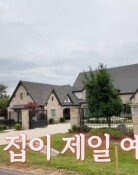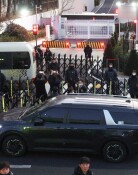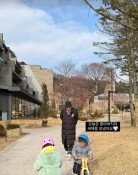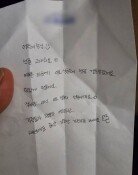Russian Scholars Promoting Korean Studies Worldwide
Russian Scholars Promoting Korean Studies Worldwide
Posted October. 07, 2005 07:35,
The author of the bestselling book, Your Republic of Korea, Park No-Ja (whose Russian name is Vladimir Tihonov), introduced himself to me in a telephone interview by saying I was born in Russia but I am a citizen of the Republic of Korea, currently teaching Korean studies in Norway.
Park is currently a professor at the University of Oslo.
Professor Leonit Petrov of the Cross Cultural Studies Institute in San Francisco has a background that is as global as Parks. Petrov, who studied Korean studies in Russias Saint-Petersburg University with Park, received his doctorate in North Korean history from Australian National University. He is an Australian living in the U.S., but he studies and teaches Korea everyday.
There are dozens of Russian experts on Korea working around the world. In the U.S. there is Professor Alexander Mansourov of Asia-Pacific Center for Security Studies (APCSS) in Hawaii, and Dr. Alexander Boronchov, who is a visiting researcher at Washingtons Brookings Institute. In Canada, there is Professor Victor Aknin, a linguist speaking 11 languages including Korean and Tungus. Professor Andrei Lankov who is currently visiting Koreas Kookmin University has been teaching Korean studies at Australian National University since 1996.
Most of the prominent scholars on Korean studies in their 30s or 40s who can teach and discuss in English are working outside Russia, said Lankov. In the case of Park, he chose to become a Korean citizen after marrying a Korean.
The biggest reason for their working overseas is that social and financial status of professors and researchers plunged after the fall of the Soviet Union. Meanwhile, Korea was enjoying rising national status and there was increased worldwide demand for Korean experts due to North Korean nuclear crisis.
Park says, Each year, there are five to six new jobs concerning Korea in the U.S. and one or two in Europe, and in most cases Russians get those jobs. This is possible because Russian scholars have the competitive edge.
Among areas of Korean studies, Russia is strong in humanities such as linguistics, literature, history and philosophy. Particularly developed is their research in Koreas classical literature because scholars favored non-political areas of study during the time of the Soviet Union. Lankovs doctoral dissertation was on party conflicts in the Joseon Dynasty, and Parks major is the history of Gaya.
Russian experts on Korea not only have rich academic backgrounds, but also abundant work experiences as well. Boronchov and Mansourov have worked as ambassadors to North Korea.
Lankov feels Russian scholars like him have partly contributed to promoting Korean studies around the world. However, the outflow of such talent is a serious brain drain on Russia. Lankov is worried that Korean studies within Russia might suffer as talented colleagues or younger scholars choose to go abroad or give up their studies to work for a company. However Professor Park said that he didnt want to be restricted by nation or nationality.
Ki-Hyun Kim kimkihy@donga.com







